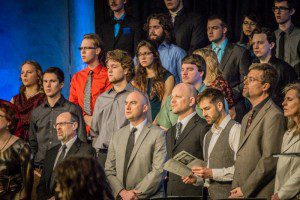New discipleship program takes root in Hepburn
The April 2015 closure of 88-year-old Bethany College, Hepburn, Sask., was like the death of a dear friend, but a group of alumni and friends believed its discipleship-training strengths could be reborn for the next generations. June 1, 2016, the Bethany board and vision group working committee announced that a discipleship program will begin on the Hepburn campus in fall 2017.
The mission of the as-yet-unnamed eight-month program is to form young adults into “whole and holy disciples.”
In the new program, three-week modules will explore each topic through discovery (teaching/knowledge transfer), development (personal application) and service. Staff mentors will share the rhythms of life with students, who will be living in residence.
The new program is rooted in Bethany College’s legacy, from its location on campus to its continued collaboration with long-term service education partners. The Saskatchewan MB conference’s 2015 theme verse provided inspiration: “Unless a kernel of wheat falls to the ground and dies, it remains only a single seed. But if it dies, it produces many seeds” (John 12:24).
After more than a year’s worth of prayer, discernment and consultation, the Bethany vision group’s presentation to the Bethany College board Mar. 19, 2016, received unanimous approval for the residential discipleship program. A transition from the current governance structure (oversight board and working group) to an operational board is planned for Sept. 1, 2016.
The provincial MB conference’s Developmental Leadership Team (DLT) has endorsed the new program as one of several strategies for discipleship and training to build the local church.
 “An exciting thing, aside from the new program starting, is that we’ve had conversations with other organizations to turn [the former college site] into a true community campus with multiple organizations, providing a real integration of programs,” says board chair Trevor Rempel. Expanded rental arrangements, from one-time event to ongoing organizational partnerships, will also contribute to sustainable finances.
“An exciting thing, aside from the new program starting, is that we’ve had conversations with other organizations to turn [the former college site] into a true community campus with multiple organizations, providing a real integration of programs,” says board chair Trevor Rempel. Expanded rental arrangements, from one-time event to ongoing organizational partnerships, will also contribute to sustainable finances.
Prairie Spirit School Division, which has used the college’s recreational facilities for years, is exploring more usage of the school’s amenities for its programs. Other organizations see potential to house community services from child care to senior’s programs.
“This level of collaboration and integration with the extended community is an exciting example of the extension of our local churches into our communities and an important action to model to our students,” says Rempel.
The board and vision group ask for prayer during the transition phase, and for strong leaders to join the team.
—Karla Braun
Updated June 6, 2016
